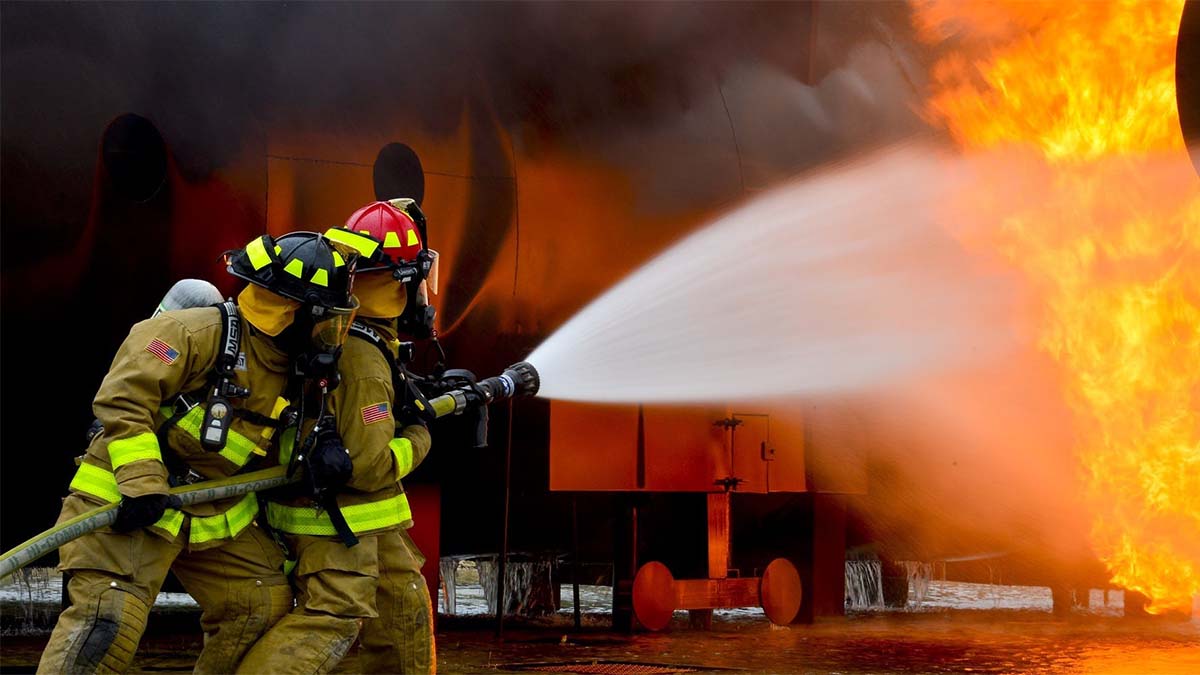Virginia fire departments and emergency medical services teams face a shortage of volunteers and staff in the face of a growing workload, according to a new state report obtained by VPM News.
The report was commissioned by the General Assembly earlier this year and due Oct. 1 but it has yet to be publicly released by Gov. Glenn Youngkin’s administration. Drafted by a workgroup of fire and EMS providers as well as state and local officials, it paints a sobering picture of the challenges facing fire and EMS teams across the commonwealth.
This story was reported and written by VPM News
The workgroup found statewide calls for EMS and fire service grew 39% from the fiscal years of 2021 to 2023. At the same time, local officials and service providers surveyed by the workgroup reported a drop in volunteers — an acute problem given roughly 70% of fire departments in the state are staffed by unpaid service providers. (Virginia's fiscal year runs from July 1 through June 30 each year.)
The report notes that 18% of localities said they couldn’t meet state standards on EMS staffing, while 70% “could only sometimes, never or rarely” meet federal fire safety standards.
The workgroup was also charged with coming up with new funding models.
One possible solution seemed to especially draw the scrutiny of Terrance Cole, state secretary of public safety and homeland security: creating state-funded staff at the local level. The proposal would cost an estimated $255 million annually if it were fully enacted, according to the workgroup.
The General Assembly uses a similar model for local law enforcement, with sheriff’s offices required under state law to field one deputy per 1,500 residents. By contrast, the state currently offers fire and EMS providers grant funding, largely for equipment and training, that the report says has only “increased at a marginal rate.” Localities generally foot the bill for any staff salaries.
The report “lacks a realistic policy and funding recommendation where all stakeholders contribute to a sustainable solution with shared responsibility,” Cole wrote in a Nov. 27 letter to the chairs of the Virginia House and Senate laws committees that accompany the report. “We do not agree with that option as presented.”
In a follow-up email Tuesday, Youngkin’s spokesperson Macaulay Porter did not directly address a question on why the report hadn’t been publicly released. She said the administration “communicated the report to the necessary committees.”
“The report's recommendation that the state assume sole financial responsibility for localities is misguided,” Porter said.
The report also offers several proposals, including using statewide procurement to help address rising equipment costs; increasing a 1% tax on certain types of insurance that currently is used to fund firefighting; steering more of a vehicle registration fee toward firefighting and EMS services; and creating a statewide grant program to help address staffing shortages.
Cole agreed with the procurement idea and said localities should also take advantage of federal grants and suggested the state could set up a portal to make it easier to find those funds. He didn’t respond to several of the other ideas.
Those federal grants offer valuable but inconsistent funding, according to William Boger, district vice president of Virginia Professional Firefighters and an active firefighter with Henrico County. Boger stressed that the idea for state-funded positions — and estimated price tag — weren’t intended as the final word on funding and called the report a “good first step” for drawing the public’s attention to the issue.
Even career firefighting departments like Henrico’s have seen a decline in applications, Boger said. Equipment costs have gone up; a firetruck that might have cost $500,000 several years ago is now closer to $1 million, according to Boger. And first responders have faced a call volume that’s ballooned as the public seeks help on issues that may not be life-threatening.
“Anything that is not a police matter is a fire matter, because the majority of fire departments are the ones who also provide their emergency medical services.” Boger said. “We’ve become almost a primary care in a lot of instances.”
Del. Mark Sickles (D–Fairfax), who sponsored the bill that led to the report, said he hoped Youngkin would find funding to address the problem in his proposed budget, which the Republican is set to formally unveil Dec. 20.
“It's a huge issue in rural and small town Virginia, particularly,” said Sickles, who is also a member of the House Appropriations Committee. “They don't have the capability to finance what's needed out there. So the General Assembly's going to have to take a close look at it.”
Youngkin and the incoming Democratic majorities in the state Legislature will have to reckon with a budget that’s significantly flush compared to the last few years. Youngkin’s team of economic advisers are also predicting a mild recession.

